
Erbil: The Ancient Jewel of Mesopotamia
Erbil, the capital of the Kurdistan Region in Iraq, is one of the oldest continuously inhabited cities in the world. This city is a treasure trove of history, culture, and modern attractions, making it a must-visit destination for travelers seeking a unique blend of old and new. The heart of Erbil is its ancient Citadel, a UNESCO World Heritage Site that has stood for more than 6,000 years. Walking through its narrow streets, you can feel the weight of history in every stone. The Citadel offers stunning views of the city and houses a museum that showcases the rich heritage of the region. Beyond the Citadel, Erbil boasts vibrant markets, like the Qaysari Bazaar, where you can find traditional Kurdish crafts, spices, and textiles. The city's modern side is equally impressive, with luxurious hotels, shopping malls, and a variety of restaurants offering both local and international cuisine. Don't miss the opportunity to relax in one of Erbil's beautiful parks, such as Sami Abdulrahman Park, which offers a peaceful escape from the hustle and bustle of the city.
Local tips in Erbil
- Visit the Citadel early in the morning or late afternoon to avoid the heat and enjoy the best light for photography.
- Explore the Qaysari Bazaar with a local guide to truly appreciate the history and significance of the market.
- Try the local Kurdish cuisine, especially dishes like dolma and kebabs, at traditional restaurants.
- Take a day trip to the nearby mountains for hiking and to experience the natural beauty of Kurdistan.
- Respect local customs and dress modestly when visiting religious and historical sites.
Erbil: The Ancient Jewel of Mesopotamia
Erbil, the capital of the Kurdistan Region in Iraq, is one of the oldest continuously inhabited cities in the world. This city is a treasure trove of history, culture, and modern attractions, making it a must-visit destination for travelers seeking a unique blend of old and new. The heart of Erbil is its ancient Citadel, a UNESCO World Heritage Site that has stood for more than 6,000 years. Walking through its narrow streets, you can feel the weight of history in every stone. The Citadel offers stunning views of the city and houses a museum that showcases the rich heritage of the region. Beyond the Citadel, Erbil boasts vibrant markets, like the Qaysari Bazaar, where you can find traditional Kurdish crafts, spices, and textiles. The city's modern side is equally impressive, with luxurious hotels, shopping malls, and a variety of restaurants offering both local and international cuisine. Don't miss the opportunity to relax in one of Erbil's beautiful parks, such as Sami Abdulrahman Park, which offers a peaceful escape from the hustle and bustle of the city.
When is the best time to go to Erbil?
Iconic landmarks you can’t miss
Family Mall Erbil
Erbil's premier shopping destination with over 130 stores, a multiplex cinema, diverse dining, and family-friendly entertainment for an unmatched experience.
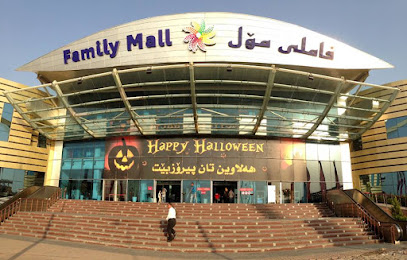
Citadel of Erbil
Explore the ancient Citadel of Erbil, a UNESCO World Heritage Site and one of the world's oldest continuously inhabited settlements, offering a captivating journey through time.
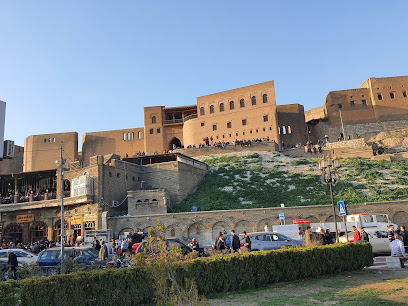
Samî Abdulrahman Park
Escape to Erbil's largest park: a green sanctuary with gardens, lakes, and monuments, offering a peaceful retreat for all visitors.
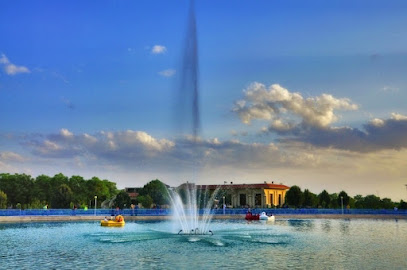
Majidi Mall Erbil
Experience the best of shopping, dining, and entertainment at Majidi Mall Erbil, a modern hub celebrating local culture and global brands.
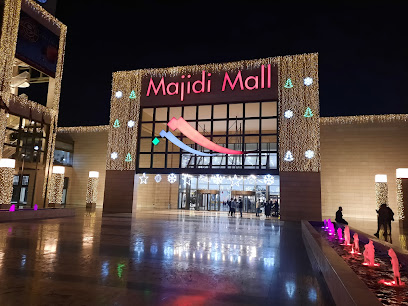
Downtown - Erbil
Experience modern shopping and local culture at Downtown Erbil, a vibrant hub in the heart of the Kurdistan Region.
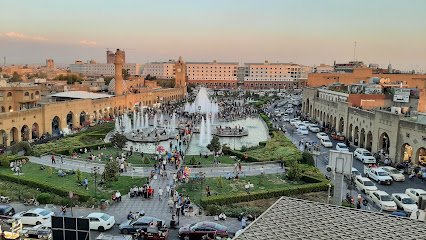
Majidi Land Erbil
Experience thrilling rides & family fun at Majidi Land Erbil, a top amusement park with a dinosaur park, games, and attractions for all ages!
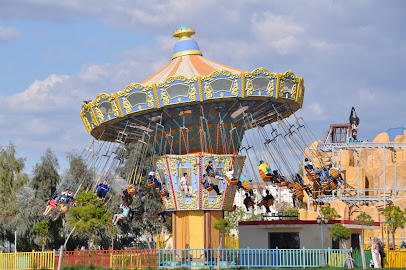
Erbîl qayseri bazar
Explore Erbil's historic Qaysari Bazaar: a vibrant hub of Kurdish culture, commerce, and timeless traditions in the heart of the city.
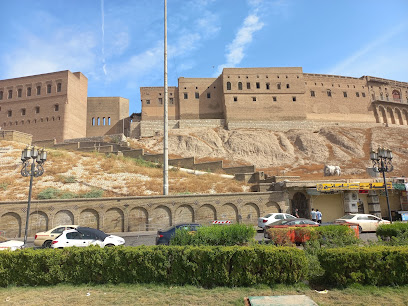
Shanadar Park
Escape to Erbil's heart: Shanadar Park, where nature meets history and modern leisure.
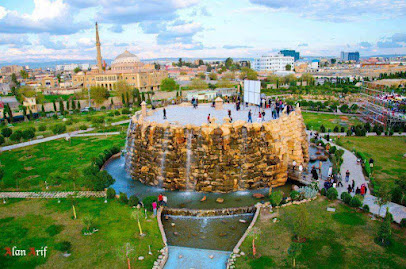
Jalil Khayat Mosque
Discover Erbil's architectural gem, the Jalil Khayat Mosque: A blend of Islamic art, culture, and serene spirituality in the heart of Kurdistan.
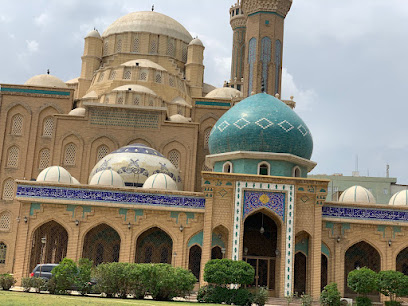
Minara Park
Escape to Erbil's tranquil Minara Park, a green oasis with the iconic Mudhafaria Minaret, offering a blend of nature, culture, and history.
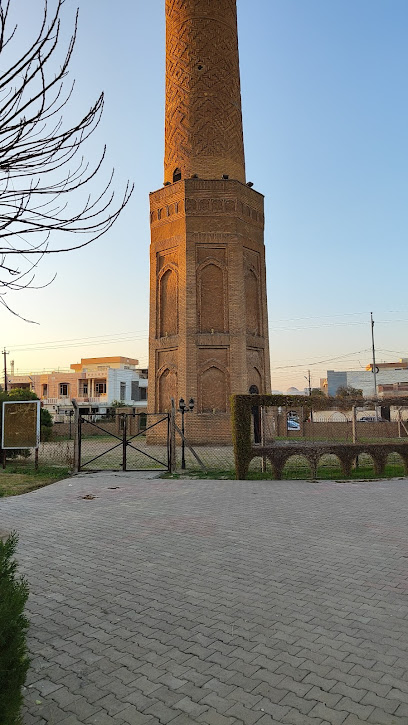
Peshmarga Park
Escape to Erbil's green heart: Peshmarga Park, where recreation meets history and natural beauty thrives.
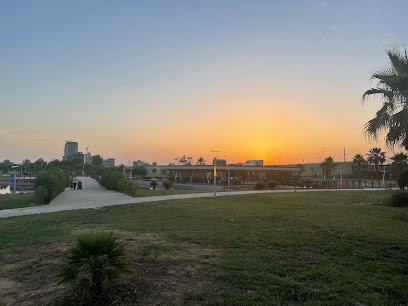
Family Fun
Experience thrilling rides and unforgettable family moments at Erbil's premier theme park, offering fun and excitement for all ages.
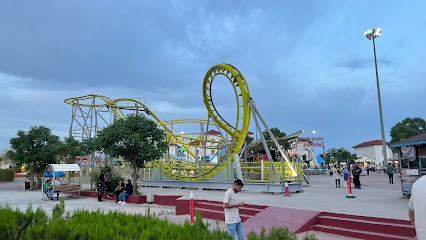
The castle Fountains and gardens
Discover a serene escape in Erbil's Castle Fountains and Gardens, where history meets natural beauty near the ancient Citadel.
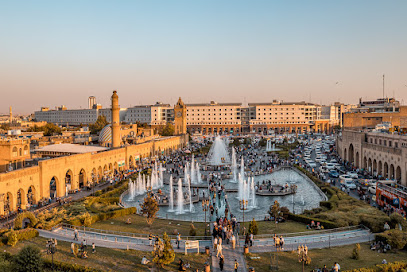
Erbil Zoo
Discover diverse wildlife in a family-friendly park, perfect for a day of exploration and relaxation in Erbil.
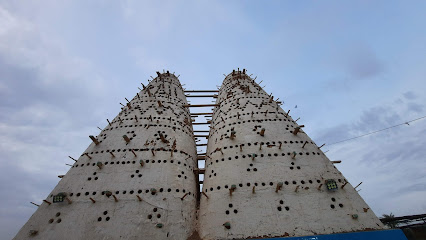
Figures
Experience modern cafe culture in Erbil at Figures Cafe, where exceptional coffee meets a vibrant, inviting atmosphere in the heart of Park View.
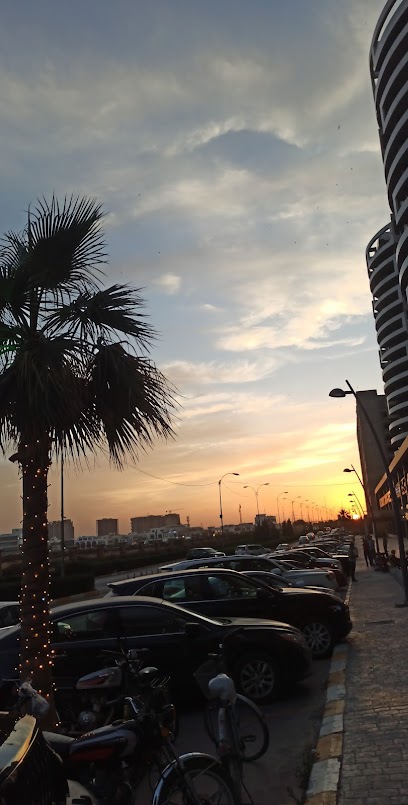
Unmissable attractions to see
Citadel of Erbil
Explore the ancient Citadel of Erbil, a UNESCO World Heritage Site and one of the world's oldest continuously inhabited settlements.
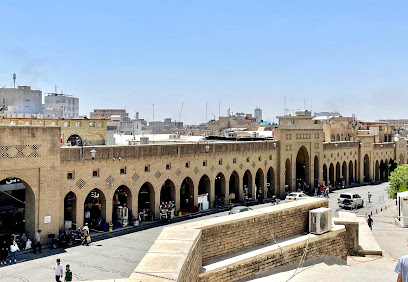
Samî Abdulrahman Park
Erbil's largest park, a green escape with lakes, gardens, and a rich history, offering a peaceful retreat for locals and tourists alike.
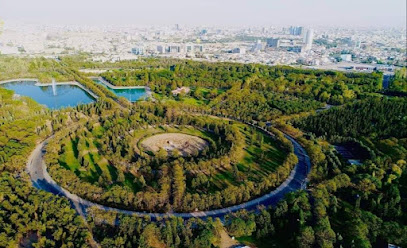
Shanadar Park
Escape to Erbil's green heart: Shanadar Park offers tranquility, recreation, and a touch of history in a beautifully landscaped setting.
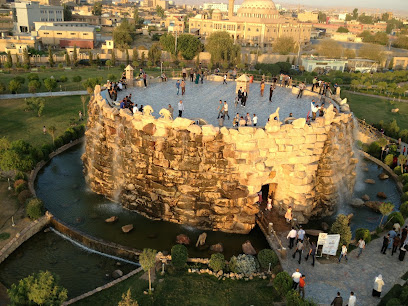
Jalil Khayat Mosque
Erbil's largest mosque, a modern architectural masterpiece blending Ottoman and Islamic styles, completed in 2007 in memory of Jalil Khayat.
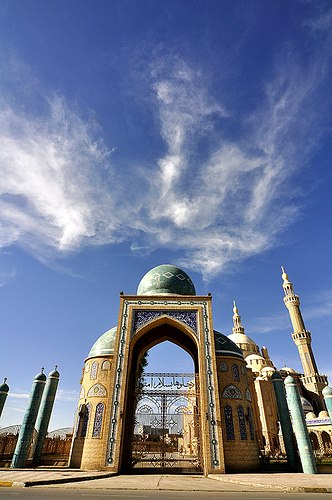
Minara Park
Discover a serene oasis in Erbil's heart, where history meets natural beauty at Minara Park, home to the iconic Mudhafaria Minaret.
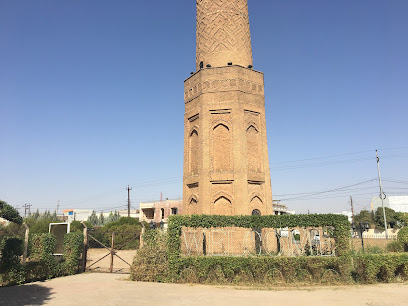
Peshmarga Park
Escape to Erbil's largest green space: Peshmarga Park, a vibrant oasis with gardens, sports, and family fun for a refreshing retreat.
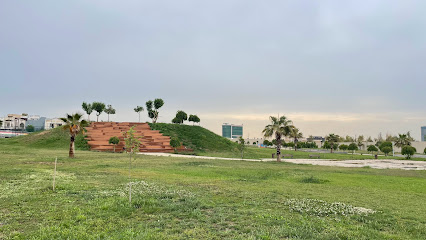
Family Fun
Experience thrilling rides and family-friendly fun at Erbil's largest amusement park, a perfect destination for a memorable day out!
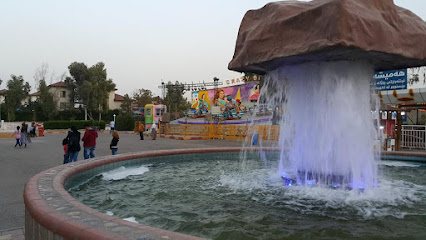
The castle Fountains and gardens
A serene escape in Erbil, blending dancing fountains, lush gardens, and historical significance near the ancient Citadel.
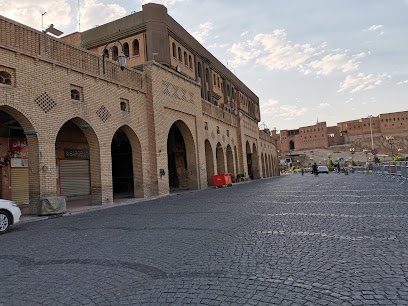
پارکی سامی ئەبدولڕەحمان
Discover Erbil's largest park: a vibrant green space with gardens, lakes, and a rich history, perfect for relaxation and recreation.
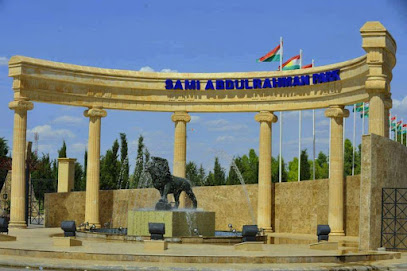
ILLUSION MUSEUM ERBIL
Experience mind-bending exhibits and challenge your perception of reality at the Illusion Museum Erbil, a unique destination for all ages.
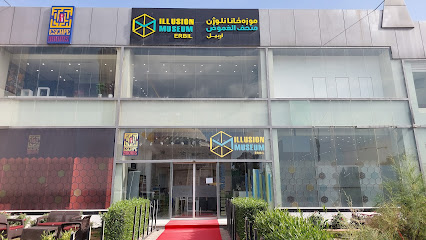
Kurdish Textile Museum
Discover the vibrant world of Kurdish textiles at the Kurdish Textile Museum in Erbil, showcasing the artistry and cultural heritage of Kurdish weaving.
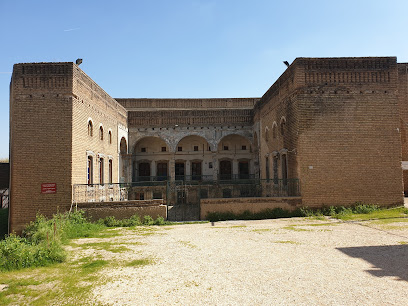
Shaneder Park 2
Discover a tranquil escape at Shaneder Park 2 in Erbil, offering green spaces and family-friendly recreation near the city center.
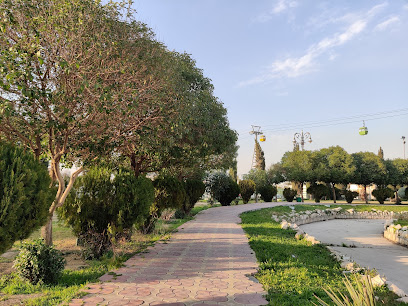
Syriac Heritage Museum
Discover the rich Syriac heritage of Erbil at this cultural museum, showcasing ancient artifacts and traditions.
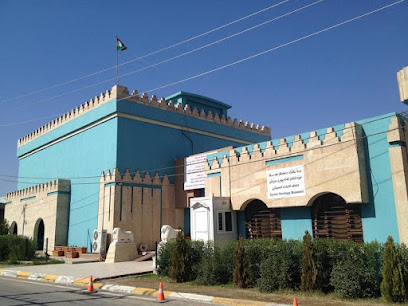
Bakhi Shar Park
Escape to tranquility in the heart of Erbil at Bakhi Shar Park, a lush garden oasis perfect for relaxation and nature appreciation.
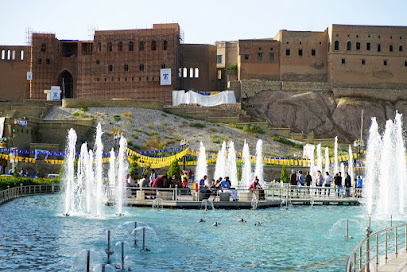
Sakura Park
Escape to Sakura Park in Erbil: A serene oasis of Japanese cherry blossoms and tranquil gardens, perfect for relaxation and cultural appreciation.
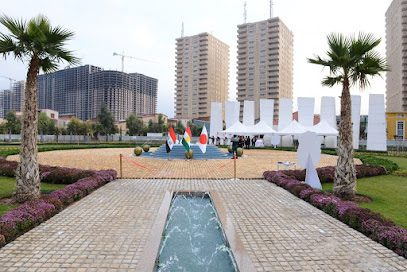
Essential places to dine
ABC Restaurant Erbil
Experience the diverse flavors of American, Asian, and Middle Eastern cuisine at ABC Restaurant Erbil - where every meal is a celebration.
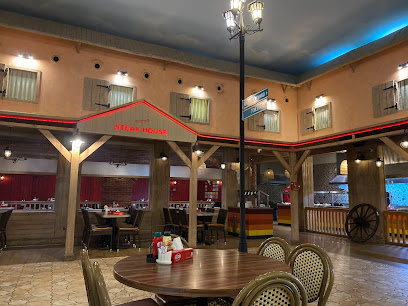
Samad Restaurant
Discover authentic Kurdish flavors at Samad Restaurant in Erbil – a culinary haven for food enthusiasts seeking unforgettable dining experiences.
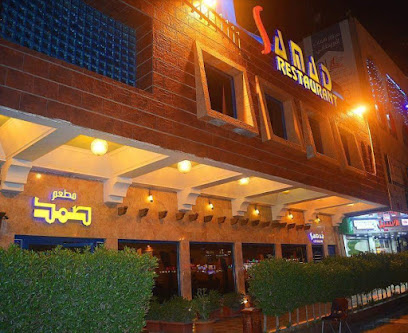
Abu Shahab City Restaurant
Experience authentic Iraqi cuisine at Abu Shahab City Restaurant in Erbil – where tradition meets flavor in every dish.
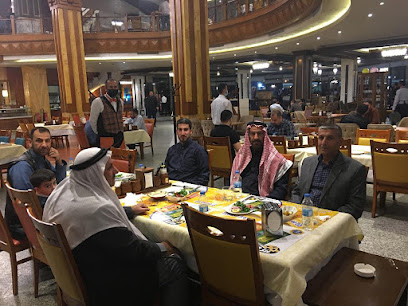
99 Grill-Erbil
Discover Erbil's culinary gem at 99 Grill-Erbil - where fresh ingredients meet mouthwatering flavors.
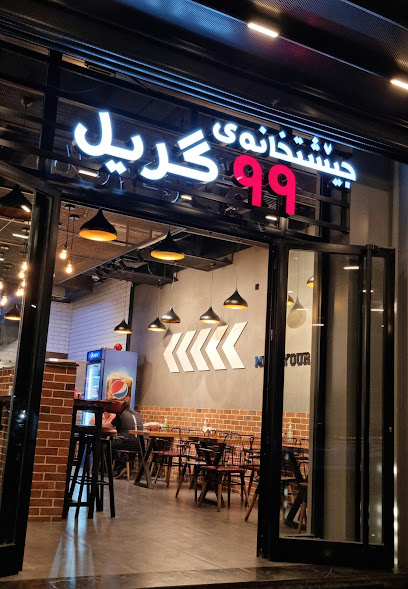
TODAY Rest & Cafe
Discover Erbil's vibrant dining scene at TODAY Rest & Cafe in Roya Towers, where delicious cuisine meets stunning views.
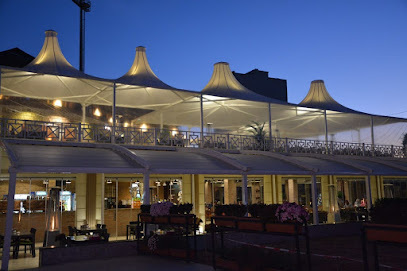
Hiror
Experience exquisite dining at Hiror in Erbil's Zin City, where local flavors meet international cuisine in an elegant setting.
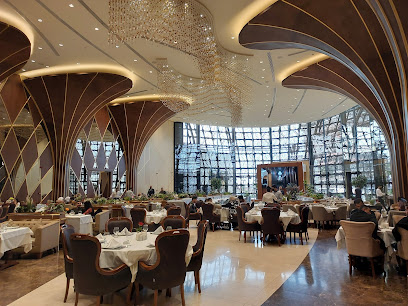
Buffalo Wings & Rings - Erbil
Experience the best of American cuisine at Buffalo Wings & Rings in Erbil - delicious wings and lively atmosphere await you!
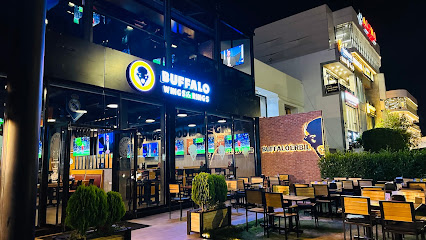
The Grill
Experience the best of grilled cuisine at The Grill in Erbil's vibrant Gulan Park World Trade Center.
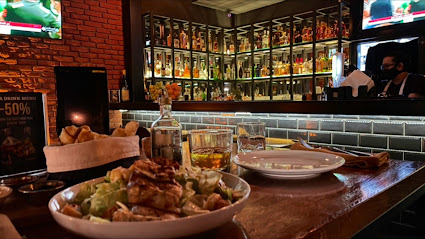
Top Organic Grill
Experience exceptional organic cuisine at Top Organic Grill in Erbil – where health meets flavor in every bite.
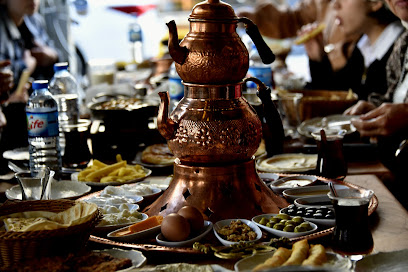
Dawa 2 Restaurant
Experience authentic Kurdish cuisine at Dawa 2 Restaurant in Erbil, where every dish tells a story rich in flavor and tradition.
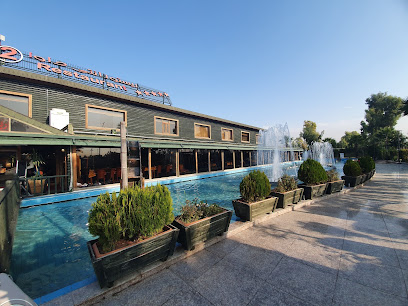
Naranj نارنج أربيل
Experience authentic Syrian flavors at Naranj in Erbil - where every dish is crafted with passion and tradition.
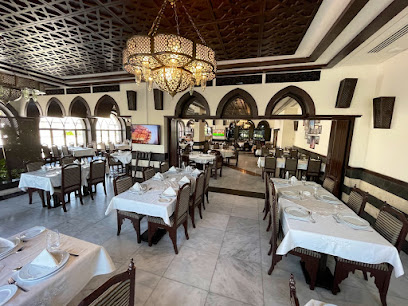
Habruri Grill
Discover the essence of Chinese cuisine at Habruri Grill in Erbil's vibrant Ankawa district – where every dish tells a flavorful story.
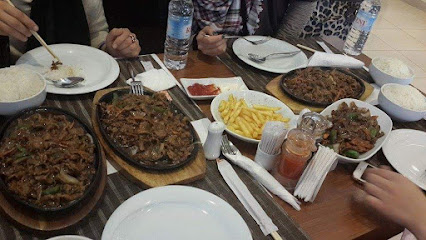
Marina Restaurant
Experience the flavors of Lebanon at Marina Restaurant in Erbil – where exquisite cuisine meets elegant ambiance.
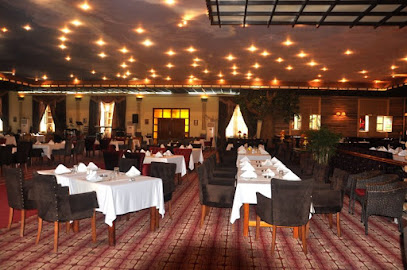
Welldone Bowl Restaurant
Discover the exquisite flavors of Japan at Welldone Bowl Restaurant in Erbil, where culinary artistry meets exceptional dining.
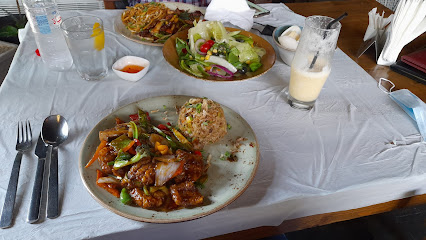
Taj Restaurant ڕێستورانتی تاج
Discover authentic Iraqi flavors at Taj Restaurant in Erbil – where tradition meets modern dining in a cozy atmosphere.
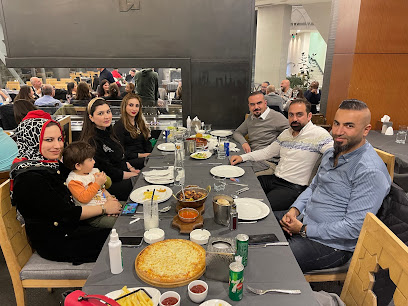
Markets, malls and hidden boutiques
Family Mall Erbil
Discover endless shopping, dining, and entertainment at Family Mall Erbil, where every visit is a delightful experience for tourists and locals alike.
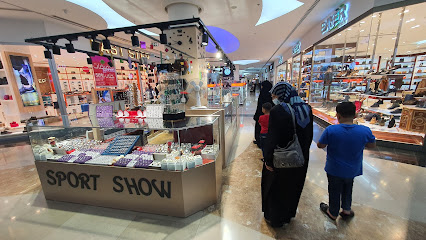
Majidi Mall Erbil
Explore Majidi Mall in Erbil for a unique blend of shopping, dining, and entertainment in a modern, vibrant setting.
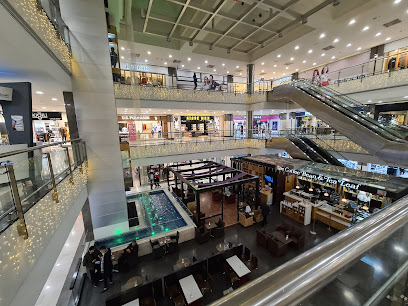
Downtown - Erbil
Explore Downtown Erbil: A vibrant shopping mall and market featuring diverse retail options, delicious cuisine, and a unique cultural experience in the heart of Iraq.
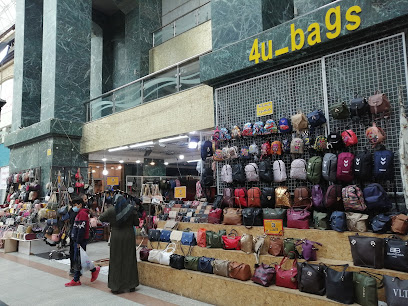
Erbîl qayseri bazar
Discover the vibrant Erbîl Qayseri Bazar, a cultural gem where traditional crafts, delicious cuisine, and lively atmosphere await every visitor.
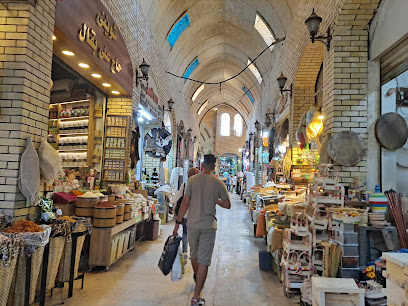
Royal mall
Explore the Royal Mall in Erbil: A vibrant shopping destination with diverse retail stores, dining, and entertainment for every traveler.
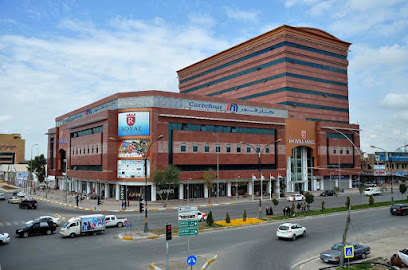
Mega Mall
Discover Erbil's Mega Mall: A Shopping Paradise with Dining and Entertainment for Every Traveler.
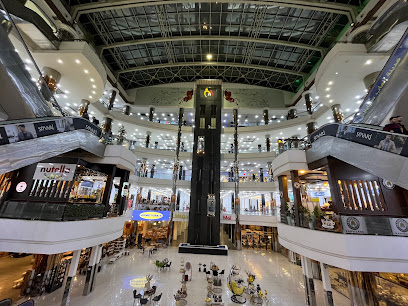
Grand Majidi Mall
Explore Grand Majidi Mall in Erbil, a vibrant shopping center offering diverse stores, delicious dining, and family-friendly activities for all travelers.
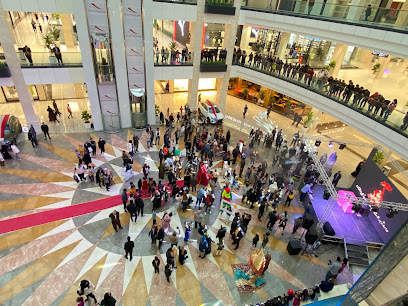
New City
Experience shopping, dining, and entertainment at New City Shopping Mall in Erbil, where culture meets modern convenience.
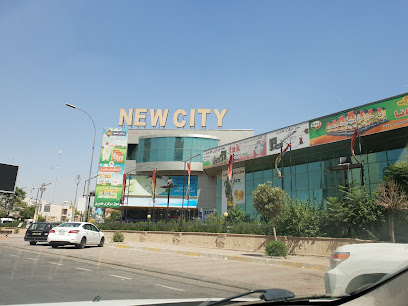
Gulan Mall
Explore Gulan Mall in Erbil: where shopping, dining, and entertainment come together in a vibrant atmosphere.
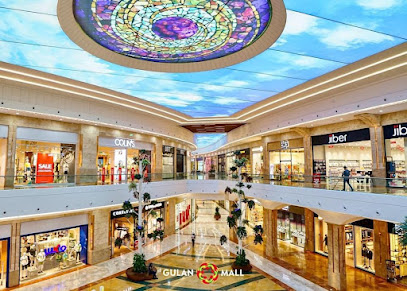
USA Bazaar
Explore the vibrant USA Bazaar in Erbil, a premier shopping destination blending local culture with modern retail experiences.
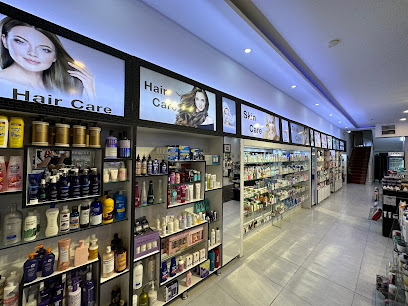
Sama Mall
Experience the vibrant shopping scene at Sama Mall in Erbil, where local goods, international brands, and dining options await.
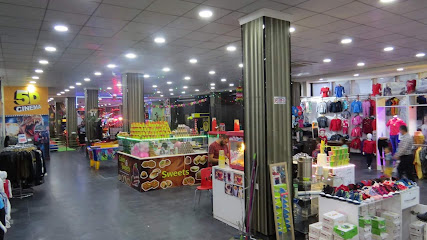
Modern Collection
Explore Modern Collection in Erbil for the latest fashion trends and unique clothing options that cater to every style and budget.
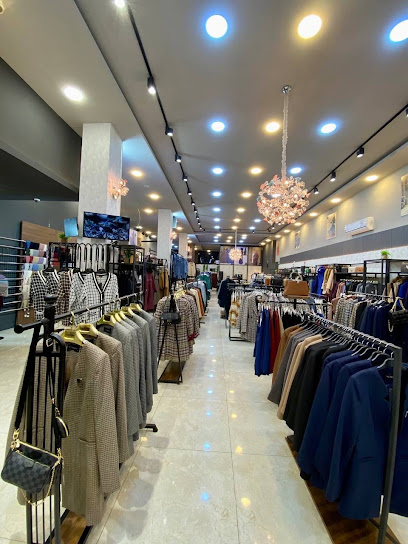
Omed mall ئومێد مۆڵ
Explore Omed Mall in Erbil for stylish baby clothing and charming accessories perfect for your little ones.
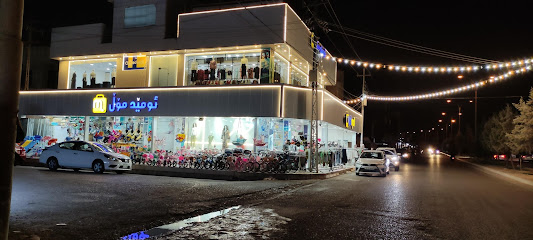
German Bottle Shop
Explore a diverse selection of fine wines, craft beers, and spirits at the German Bottle Shop in Erbil, a treasure for beverage connoisseurs.
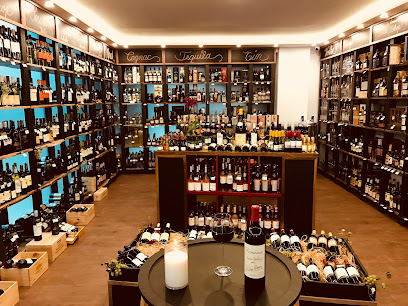
MINISO
Explore MINISO in Erbil for stylish home goods at affordable prices, blending quality and design for every taste.
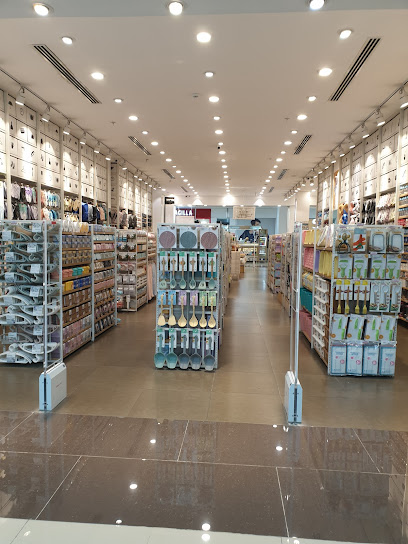
Essential bars & hidden hideouts
German Bar
Immerse in the vibrant atmosphere of the German Bar in Erbil, where exquisite cuisine meets a wide selection of beverages.
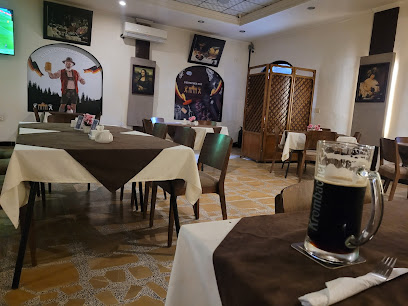
The Vinery Wine Bar
Discover The Vinery Wine Bar in Erbil, where exquisite wines meet culinary excellence for a memorable dining experience.
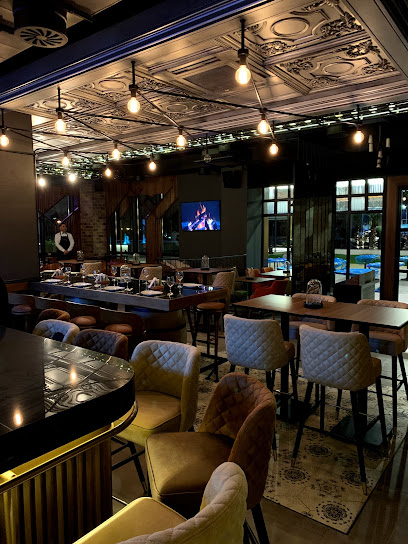
Mars Rooftop
Experience the ultimate nightlife at Mars Rooftop in Erbil, where stunning views meet exquisite cocktails and vibrant entertainment.
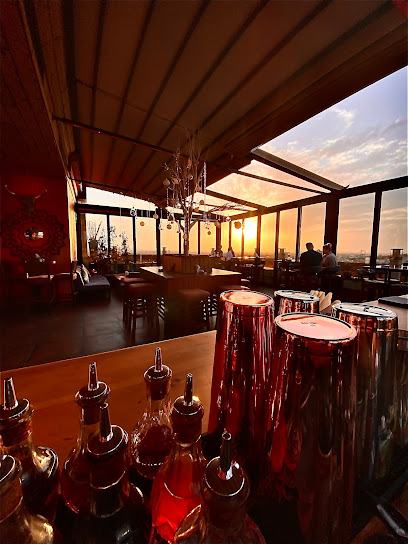
نادي الموظفين العائلي
Experience the vibrant nightlife of Erbil at the Family Employees Club, a unique bar offering an inviting atmosphere and diverse beverage selection.
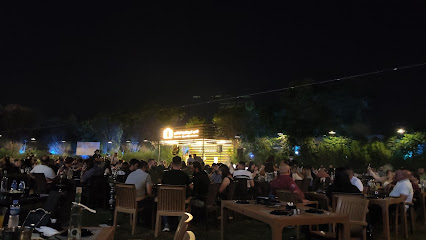
Piccadilly Pub and Restaurant
Explore the lively Piccadilly Pub and Restaurant in Erbil for a unique blend of local flavors, vibrant atmosphere, and unforgettable experiences.
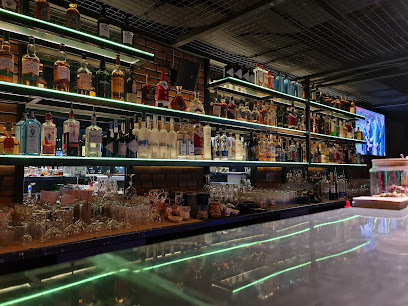
Loft
Discover Loft in Erbil: A vibrant bar and restaurant offering delicious cuisine and a lively atmosphere for an unforgettable night out.
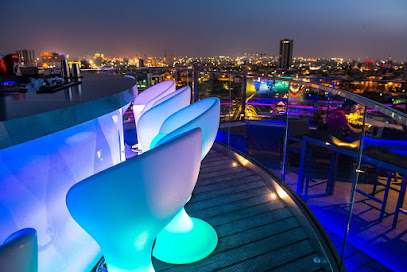
The Two Princes English Pub
Experience the essence of British pub culture at The Two Princes English Pub in Erbil, where hearty food and great company await.
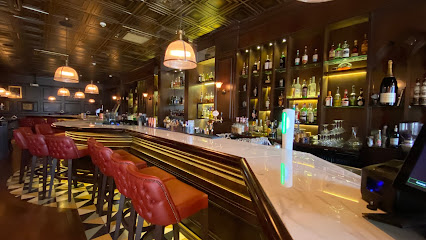
Siduri Pub - رێستورانتی سیدووری
Discover the lively Siduri Pub in Erbil, a perfect blend of local flavors and vibrant atmosphere, ideal for tourists seeking an authentic experience.
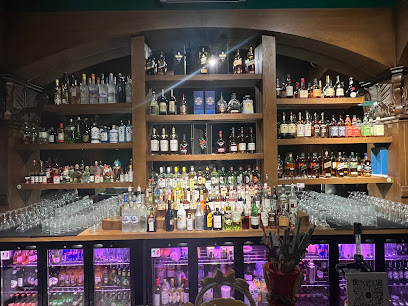
Quiet House Rest&Bar
Experience the heart of Erbil's culinary scene at Quiet House Rest&Bar, where grilled delights and a vibrant atmosphere await.
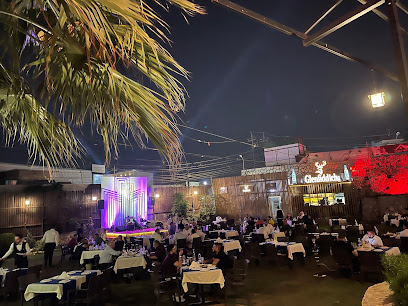
Poseidon Bar & Restaurant- پۆسایدن باڕ
Discover the vibrant atmosphere of Poseidon Bar & Restaurant in Erbil, where delicious cuisine meets refreshing leisure by the pool.
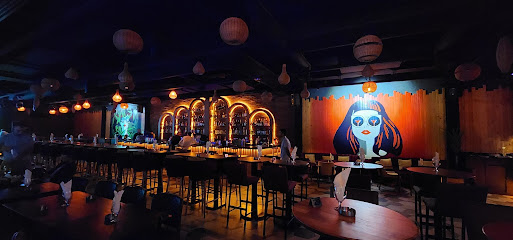
Corleone
Experience the vibrant nightlife of Erbil at Corleone, a lively bar offering a blend of local culture and contemporary vibes.
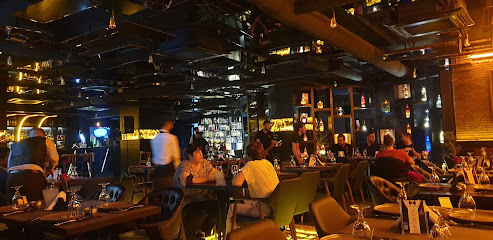
Palmyra Pub
Experience the vibrant nightlife and delicious grilled cuisine at Palmyra Pub in Erbil, a hotspot for tourists and locals alike.
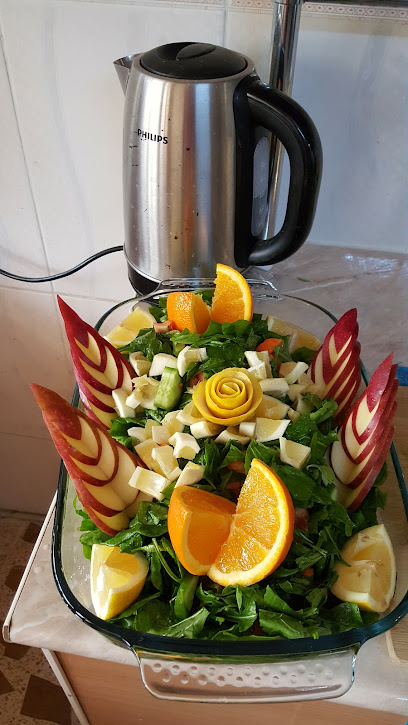
Oak Resto pub
Experience the lively ambiance and delicious flavors of Oak Resto Pub in Erbil, the perfect destination for food and drink lovers.
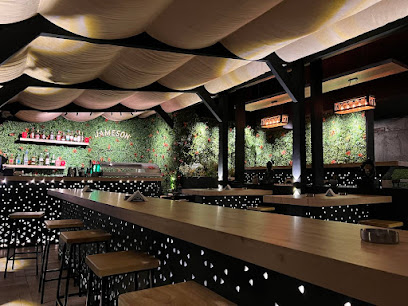
RESTOBAR RESTAURANT & BAR
Savor the vibrant atmosphere and exquisite flavors at RESTOBAR RESTAURANT & BAR in Erbil, where local culture meets culinary delight.
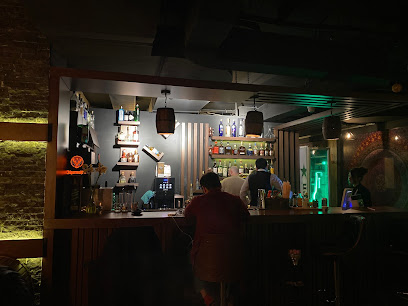
Local Phrases
-
- Helloسڵاو
[Slaaw] - Goodbyeخداحافظ
[Khuda hafiz] - Yesبەڵێ
[Belle] - Noنەخێر
[Nekher] - Please/You're welcomeتکایە
[Takaye] - Thank youسوپاس
[Sipas] - Excuse me/Sorryببورە
[Bbore] - How are you?چۆنیت؟
[Choniit?] - Fine. And you?باشە. تۆ چی؟
[Bashe. To chi?] - Do you speak English?زمانی ئینگلیزی دەتوانیت بپێشە؟
[Zmani inglizi detwanit bepesh?] - I don't understandنەفەهمم
[Nefehmam]
- Helloسڵاو
-
- I'd like to see the menu, pleaseدەتەوێت لیست ببینیت، تکایە
[Detewet list bibenit, takaye] - I don't eat meatمن گوشت ناخوم
[Min gosht nakhum] - Cheers!سەلامتییەکان!
[Selamtiyekan!] - I would like to pay, pleaseدەتەوێت پارە بدەیت، تکایە
[Detewet pare bedeit, takaye]
- I'd like to see the menu, pleaseدەتەوێت لیست ببینیت، تکایە
-
- Help!یارمەتی!
[Yarmeti!] - Go away!لە دەوروبە!
[Le dwroba!] - Call the Police!پۆلیس پەخش بکە!
[Polis pexh beke!] - Call a doctor!دۆکتۆر پەخش بکە!
[Doktor pexh beke!] - I'm lostمن دەراندووم
[Min derandum] - I'm illمن تەندروستم
[Min tandrostam]
- Help!یارمەتی!
-
- I'd like to buy...دەتەوێت خەرید بکەیت...
[Detewet kherid bikeit...] - I'm just lookingمن تەنها دەگەڕم
[Min tenha degrem] - How much is it?چەندە دەکات؟
[Chende dekat?] - That's too expensiveئەوە زۆر گرانە
[Ewe zor gerane] - Can you lower the price?دەتوانیت نرخ بەخۆت بەبێت؟
[Detwanit nerkh bekhote bebete?]
- I'd like to buy...دەتەوێت خەرید بکەیت...
-
- What time is it?کاتێکە؟
[Kateke?] - It's one o'clockکاتێک یەکەیە
[Katek yekaye] - Half past (10)نیمەی (دەە)
[Nimey (daa)] - Morningصبح
[Sobh] - Afternoonدوپەڕەم
[Doparim] - Eveningئێوارە
[Evare] - Yesterdayدوێنێ
[Doyne] - Todayئەمڕۆ
[Emro] - Tomorrowسڕۆ
[Saro] - 1یەک
[Yek] - 2دوو
[Dow] - 3سێ
[Se] - 4چوار
[Chwar] - 5پێنج
[Painj] - 6شەش
[Shesh] - 7حەوت
[Hewt] - 8هەشت
[Hasht] - 9نۆ
[No] - 10دەە
[Daa]
- What time is it?کاتێکە؟
-
- Where's a/the...?لە کوێ؟
[Le koye?] - What's the address?ناونیشان چییە؟
[Nawneishan chiye?] - Can you show me (on the map)?دەتوانیت لەمەپی پیشانم بدەیت؟
[Detwanit lemepe pishanam bedeit?] - When's the next (bus)?کاتێک باس لەگەڵ ئەمادەیە؟
[Kateke bas legel emadeye?] - A ticket (to ....)بلیت
[Bilit]
- Where's a/the...?لە کوێ؟
History of Erbil
-
Erbil, known as Hawler in Kurdish, is one of the oldest continuously inhabited cities in the world, with a history spanning back over 6,000 years. It was established by the Sumerians in the third millennium BCE and has since been a critical hub in Mesopotamia, serving as a vibrant center for trade and culture.
-
During the Assyrian Empire (circa 25th century to 609 BCE), Erbil became a significant city. Known then as Arbela, it was renowned for its temples, particularly the temple to the goddess Ishtar. The city's strategic location made it a linchpin in the Assyrian trade network, linking the empire with Anatolia, Persia, and beyond.
-
Erbil's historical significance is further highlighted by the Battle of Gaugamela in 331 BCE. This decisive encounter saw Alexander the Great defeat Darius III of Persia, leading to the fall of the Achaemenid Empire. Although the battle took place near present-day Mosul, Erbil played a crucial logistical role in the campaigns of both armies.
-
With the rise of Islam in the 7th century, Erbil became an essential city in the Islamic Golden Age. Under the Abbasid Caliphate, it flourished as a center of learning and culture. The city was known for its scholars, poets, and traders, contributing to the rich tapestry of Islamic civilization.
-
In the 16th century, Erbil came under Ottoman control, becoming a vital administrative and military stronghold. The city was part of the Ottoman Empire until the early 20th century. During this period, Erbil witnessed significant architectural developments, including the construction of mosques, caravanserais, and bazaars.
-
In the 20th century, Erbil saw substantial political and social changes. It became the capital of the Kurdistan Region of Iraq, gaining a degree of autonomy. The city has since experienced rapid development and modernization, while still preserving its rich historical heritage. Today, Erbil stands as a testament to the resilience and cultural diversity of its people.
Erbil Essentials
-
Erbil is served by Erbil International Airport (EBL), which accommodates flights from major cities in the Middle East, Europe, and Asia. From the airport, you can take a taxi or arrange for hotel transfer services to reach the city center. Overland travel is also possible, with buses and shared taxis operating from cities like Baghdad and Suleimaniyah, though it's advisable to check current travel advisories before planning a road trip.
-
Within Erbil, taxis are the most common mode of transportation and are relatively affordable. Ridesharing apps like Careem and Uber are also available. For short distances, you can explore the city on foot, particularly the Citadel area. Public buses and minibuses (known locally as 'coasters') serve various routes but can be confusing for non-locals. Car rentals are available for those who prefer to drive, but be aware of local driving customs and road conditions.
-
The official currency in Erbil is the Iraqi Dinar (IQD). Credit cards are accepted in larger hotels, restaurants, and shopping centers, but cash is preferred in smaller establishments and markets. ATMs are widely available in the city for cash withdrawals. It's advisable to carry some cash for convenience, especially when visiting more remote or traditional areas.
-
Erbil is generally considered safe for tourists, but it's important to remain vigilant. Avoid the outskirts and areas with little foot traffic, especially at night. The Ankawa district, popular with expatriates, is usually safe but can be more expensive. Always check current travel advisories and avoid any areas flagged for political unrest or high crime rates.
-
In case of emergency, dial 104 for police assistance, 122 for medical emergencies, and 115 for fire services. Major hospitals like Rizgari Hospital and West Erbil Emergency Hospital offer emergency services. Ensure you have travel insurance that covers medical emergencies. Pharmacies are widespread, but for serious conditions, visiting a hospital is recommended.
-
Fashion: Do dress modestly. Both men and women should avoid revealing clothing. Women may want to carry a scarf to cover their heads when visiting religious sites. Religion: Do respect Islamic customs. During the call to prayer, avoid loud conversations near mosques. Public Transport: Do be courteous and give up your seat to elderly passengers. Don't eat or drink on public transport. Greetings: Do greet people with a handshake, but be cautious when offering to women, as some may prefer not to shake hands with men. Eating & Drinking: Do try local cuisine and accept hospitality graciously. Don't refuse food or drink offered by hosts; it can be considered impolite.
-
To experience Erbil like a local, visit the bustling Qaysari Bazaar near the Citadel for authentic shopping and cultural immersion. Don't miss the local teahouses (chaikhana), where you can enjoy traditional tea and engage with locals. For a unique experience, visit the Sami Abdulrahman Park, a large green space perfect for a leisurely stroll or picnic. Engaging with locals can provide deeper insights into the city's culture and history.
Nearby Cities to Erbil
-
Things To Do in Mosul
-
Things To Do in Kirkuk
-
Things To Do in Dohuk
-
Things To Do in Sulaymaniyah
-
Things To Do in Baghdad
-
Things To Do in Kapan
-
Things To Do in Karbala
-
Things To Do in Vayk
-
Things To Do in Goris
-
Things To Do in Jermuk
-
Things To Do in Yerevan
-
Things To Do in Najaf
-
Things To Do in Tsaghkadzor
-
Things To Do in Aparan
-
Things To Do in Dilijan











